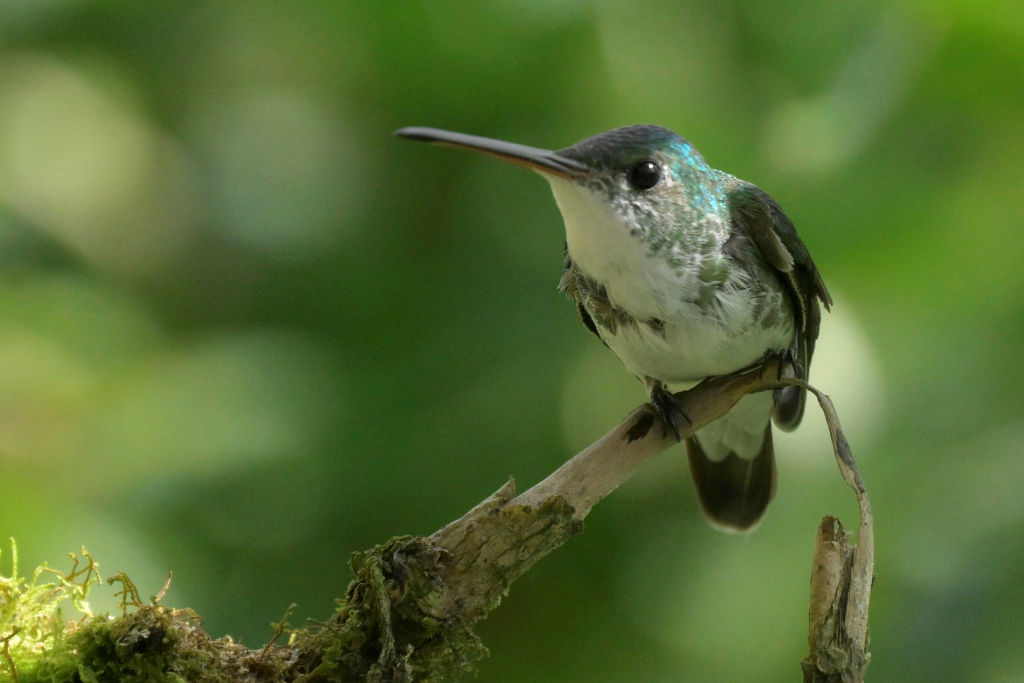Summary of Hummingbirds Can Handle Their Booze: Study Finds They Are Not Deterred by Alcohol in Nectar:
Hummingbirds consume small amounts of alcohol when they drink nectar or sugar water from flowers and feeders. The alcohol is produced through fermentation by yeast and bacteria. A study conducted by researchers from the University of California, Berkeley, found that sugar water in a hummingbird feeder had an alcohol concentration of about 0.05%. Some plants visited by hummingbirds have nectars with higher levels of alcohol, up to 0.6%. Hummingbirds do not avoid sugar water with alcohol and have a threshold for alcohol tolerance and preference, around 1.5% by volume. They show no signs of intoxication or impairment after consuming alcohol. However, they may reduce their sugar water intake with higher concentrations of alcohol to avoid adverse effects on their metabolism or behavior.
– Hummingbirds feed mainly on nectar and sugar water, which contain small amounts of alcohol yeast and bacteria produce.
– Researchers from the University of California, Berkeley found that nectar and sugar water have varying alcohol concentrations depending on freshness, temperature, and the plant species.
– Hummingbirds consume a large amount of nectar or sugar water daily, which can result in ingesting up to 0.4 grams of alcohol.
– In a study, hummingbirds were offered sugar water with different alcohol concentrations. They did not avoid feeders with 1% alcohol but visited the ones with 2% alcohol less frequently.
– Hummingbirds showed no signs of intoxication or impairment after consuming alcohol, suggesting they have a tolerance for it.
Hummingbirds are known for their dazzling plumage, acrobatic flight, and high metabolism. These small and colorful birds capture our attention with their vibrant colors and ability to hover mid-air. They feed primarily on nectar from flowers and sugar water from feeders, providing them the energy they need to sustain their rapid wing beats and body heat. But did you know that nectar and sugar water contains small amounts of alcohol? Yes, you heard that right – hummingbirds can handle their booze!
Alcohol is a natural byproduct of the breakdown of sugars by yeast and bacteria. These microorganisms are found in various environments, including flowers and feeders where hummingbirds get their nourishment. When hummingbirds visit flowers or feeders to sip nectar or sugar water, they inevitably ingest some alcohol along with the sugars. The amount of alcohol present can vary depending on factors such as the type and freshness of the nectar or sugar water and temperature and humidity conditions that affect fermentation.
A recent study conducted by researchers from the University of California, Berkeley, led by Prof. Dr. Robert Dudley, aimed to measure the alcohol content of sugar water in a hummingbird feeder over time. After two weeks, they found that the sugar water had an alcohol concentration of about 0.05% by volume, roughly equivalent to a very light beer. It is important to note that the alcohol concentration can be higher or lower in different locations and seasons.
To further understand how hummingbirds encounter and react to alcohol, the researchers conducted another experiment with three male Anna’s hummingbirds. These birds were offered sugar water with different concentrations of alcohol – 0%, 1%, or 2% by volume. The researchers recorded the number and duration of visits to each feeder and calculated the amount of sugar, water, and alcohol consumed by each bird.
The results were fascinating. The hummingbirds did not avoid sugar water with alcohol; they visited the feeders with 1% alcohol as frequently and for as long as the feeders with 0% alcohol. However, they visited the feeders with 2% alcohol less frequently and for shorter periods than the others. This suggests that hummingbirds have a threshold for alcohol tolerance and preference, which may be around 1.5% alcohol by volume.
Despite consuming alcohol, the researchers observed no apparent signs of intoxication or impairment in the hummingbirds’ behavior. The birds continued their everyday activities, such as chasing rivals, courting females, and preening feathers. This led the researchers to conclude that hummingbirds are accustomed to ingesting small amounts of alcohol from natural sources like nectar and sugar water. They are not deterred by moderate concentrations of alcohol up to 1% by volume. However, they may reduce their intake of sugar water with higher concentrations of alcohol above 1.5% by volume, possibly to avoid any adverse effects on their metabolism or behavior.
Hummingbirds are truly fascinating creatures. Their ability to tolerate and even consume small amounts of alcohol adds another layer to their captivating nature. It is remarkable to think about the intricate relationships these birds have with their environment, from their delicate relationship with flowers to their ability to handle their “booze.”
In conclusion, hummingbirds can handle their booze. They encounter alcohol naturally when sipping nectar and sugar water and have developed a tolerance for it. While higher concentrations of alcohol may lead them to reduce their intake, it seems that hummingbirds are not deterred by the presence of alcohol in their food sources. So, the next time you see a hummingbird visiting your feeder, know they can handle their nectar and booze. It’s just another significant aspect of these mesmerizing creatures.

